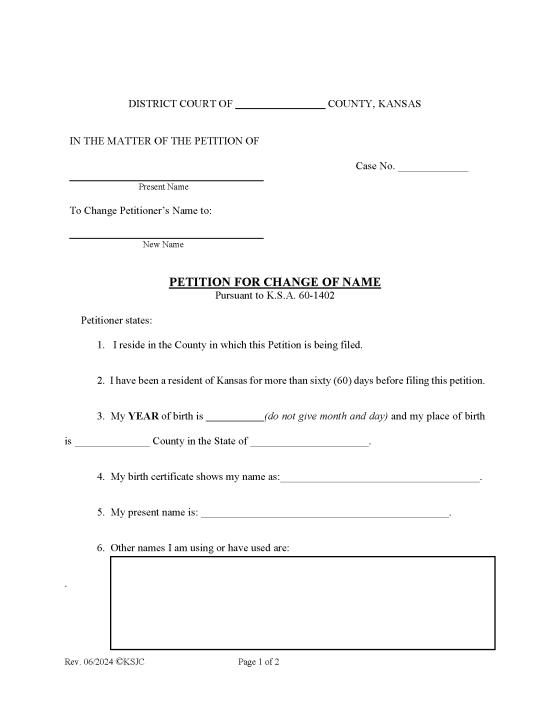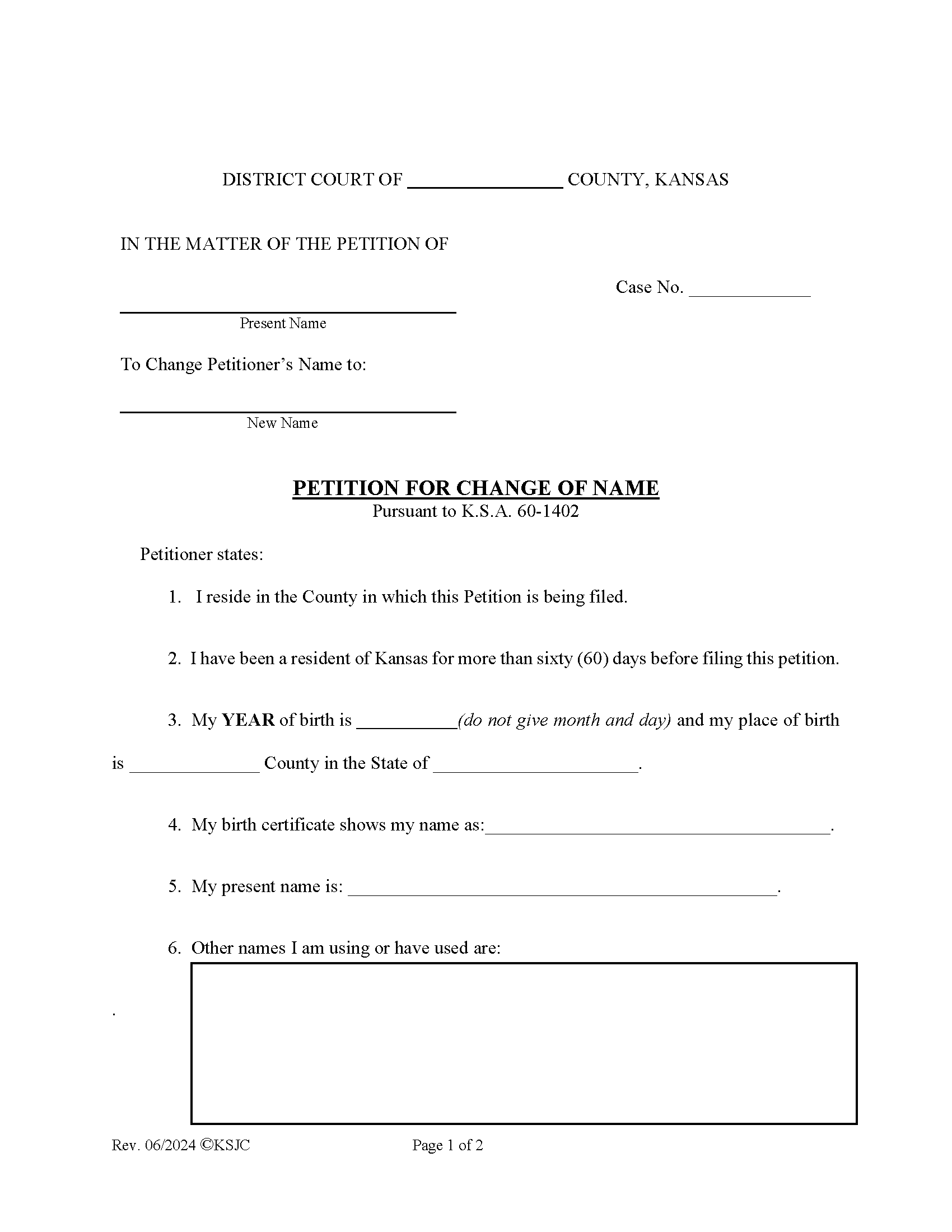Eligibility Requirements
- Age 18 or older
- Reside in the county of filing
- Reside in Kansas for at least 60 days
- If under 18, consent from both parents
How to Legally Change a Name in Kansas
Step 1 – Prepare the Forms
An adult wishing to change their name must begin by completing the following forms:
Step 2 – File and Pay
Filers must visit the district court in their county to submit the Civil Cover Sheet, Petition for Change of Name, one duplicate of the Petition, and payment for the filing fee (fees vary by county). Those unable to pay can file a Poverty Affidavit to request a fee waiver.[2]
Step 3 – Contact the Court
The district court will schedule a hearing for the name change. Filers should contact a court clerk or administrative assistant to confirm the hearing’s date and time, and to learn about the notice requirements.
Step 4 – Give Notice of Court Hearing
The filer must provide notice of the hearing as directed by the district court, which may require publication, mailed notice, or both.[3]
- Publication – A Notice of Hearing – Publication must appear in a local newspaper once per week for three consecutive weeks. After publication, the newspaper will issue proof of publication.
- Mail – A Notice of Hearing – Mail must be sent by certified mail (return receipt requested) to each person the court requires to be notified. The filer must keep the return receipts as proof.
Step 5 – Receive Signed Order
On the hearing date, the filer must appear at the courthouse and present the judge with a completed Order Changing Name and proof of notice. If the judge approves the name change, they will sign the Order Changing Name.[4] The filer should make copies of the signed Order, submit the original to the district court, and ask the clerk to file-stamp the copies.
Marriage and Divorce
Changing a name through marriage can be done by simply submitting the new name in the name change section of a marriage license application.[5]
Before or after a divorce is final, a spouse can file an Affidavit for Order Changing Name with the district court to request that their former name be restored or to request a new name altogether.[6]

